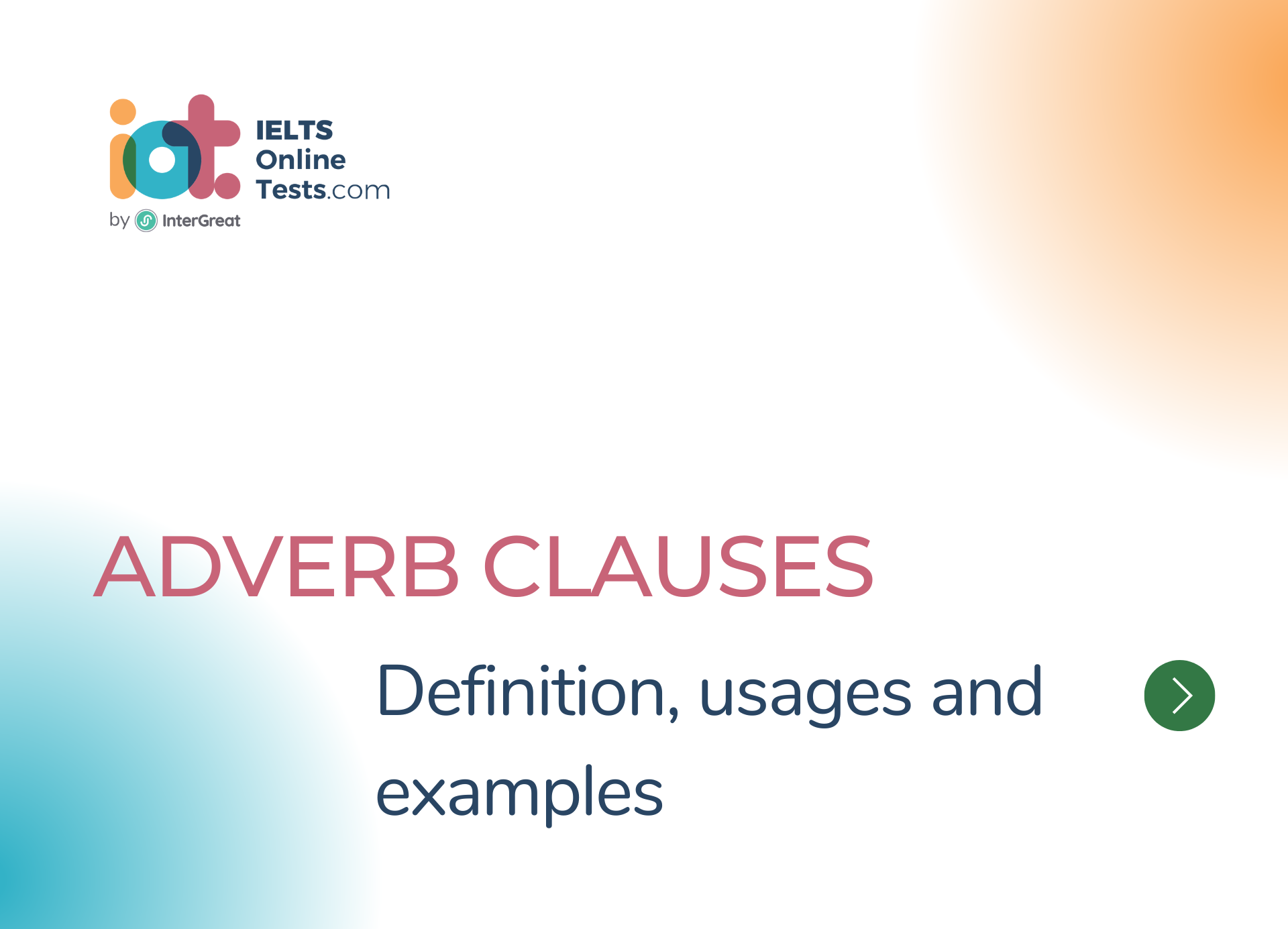
Adverb Clauses
Adverb clauses are a type of dependent clause that function as adverbs within a sentence. They provide information about the manner, time, place, condition, reason, purpose, or contrast of the action or event described in the main clause.
Here are some key details about adverb clauses:
Introduction:
- Adverb clauses are introduced by subordinating conjunctions, such as "after," "although," "because," "if," "since," "when," "while," and many others.
- The choice of subordinating conjunction depends on the type of information the adverb clause provides.
- Examples:
- Time: "I will call you when I arrive."
- Condition: "If it rains, we will stay indoors."
Function:
- Adverb clauses modify verbs, adjectives, or other adverbs by providing information about time, place, manner, condition, reason, purpose, or contrast.
- They answer questions such as "when," "where," "how," "why," "if," and "although."
- Examples:
- Time: "He left when the movie ended."
- Place: "She looked wherever she could."
- Reason: "I didn't go to the party because I was tired."
Placement:
- Adverb clauses can appear at the beginning, middle, or end of a sentence.
- When an adverb clause appears at the beginning of a sentence, it is usually followed by a comma.
- Examples:
- Beginning: "When I finish my work, I will go to the party."
- Middle: "I will go to the party if I finish my work."
- End: "I will go to the party when I finish my work."
Adverb clauses provide valuable information that adds depth, context, and specificity to sentences. They help clarify the time, place, manner, reason, or condition of an action, providing a more comprehensive understanding of the sentence. Understanding how to construct and use adverb clauses allows for more precise and nuanced expression of ideas.




